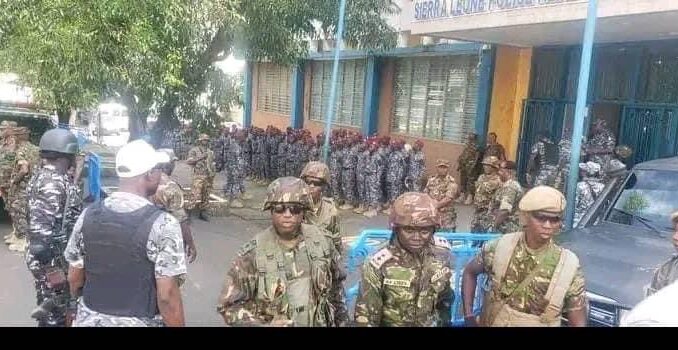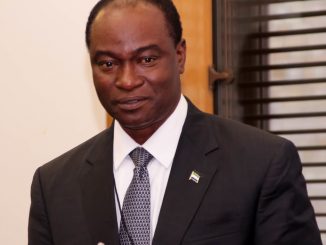
By Mahmoud Jalloh
Opinion is easier to reach than justification. That’s true. More than anything else, the Sierra Leone civil war soured relations between civilians and the military army, with many asking why it took the direct intervention of foreign forces, notably the British and Nigerians, to save the soul of Sierra Leone as an existing nation. Men and women in military uniform were in the immediate aftermath of the civil war, despised, called names, and mocked by an angry public for failing in their duty to protect them as they were left to face the horrific realities of the ruthless blood-soaked rebels, killing them and destroying their properties.
What the public including myself at the time, did not understand was that our military was as much a victim of deliberate defence underfunding as any blame meted out against them. Siaka Stevens, in the beginning of his leadership ( as the truth must be told ), was keen on upgrading the low-level post-colonial military strength to a more formidable conventional force ready to take on any challenges they may face. The issue of purchasing expensive military battle tanks and other ammunition, was at the heart of his disagreement with his then Finance Minister Dr. Mohamed Sorie Forna, who accused him of prioritising needless military expenditure over the economy. Dr. Forna emphasised the point in his lengthy tirade resignation letter.
Siaka Stevens was to later change his mind when in the early years of his government, he had to deal with coup attempts and visible coup threats to his rule or government. His next step was to neutralise the army through defence cuts as well as purge the command chain hierarchy by retiring and demoting suspected threat posed rank and file officials and super-elevating a handpicked safe pair of hand loyalists to watch over his shoulders. He also introduced the armed police ISU (Internal Security Unit) later renamed the SSD (Special Security Division) whose sole allegiance was to him and him only. ‘Spare your enemy’s dog in a deadly combat and it will return to avenge its master’s death’. That was the APC philosophy.
Siaka Stevens’ personal survival policy continued even after he left office, as his successor, President Joseph Saidu Momoh did nothing to change it. If you need proof, carry out fact finding research on the Sierra Leone civil war, or more specifically, the bold and direct statement issued by the Australian state government that was part of the United Nations peacekeeping mandate participating nations. The statement went on to say that the Sierra Leone army was ill-prepared for the war because of the massive defence underfunding by successive governments who feared being toppled from power by a strong defence army. Quote: ‘The military was instead having to rely on decaying outdated postcolonial weapons against a deadly rebellion’. While I do not believe the weapons were entirely of the postcolonial batch left for us by the British, I do however, agree with the Australian government’s frank observation that our military was poorly funded and so therefore weak and incapable. My position on this is that I wouldn’t have neither encouraged anyone to blame the military if only I knew what I now know. The heart cannot trust and fear at the same time. It has to be one of the two. The fear of losing power far outweighs the trust our leaders have in their nation and its people. That’s the plain fact.



